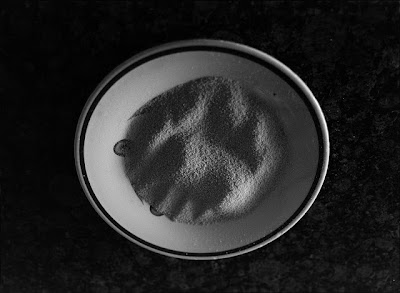This so-called crisis, which would more accurately be called a“depression” is a thousand varied things that need never have happened.
Despite the occasional sensation that life is just continuing on very much as before, the crisis here is certainly the more obvious things that many of us see when we care to look: more beggars on the streets, long queues in shoe repair shops, the recent appearance of solitary men selling tissues or cigarette lighters on the trains and Metro, a greater number of empty shops for sale or rent (or replaced by cheapo-import Chinese shops) and it is also reading more socio-political graffiti on walls.
The crisis is a European-wide failure of institutions like the financial system and the pathetic political response to it, but it is also a very immediate, local phenomenon.
In the small town where I live, three years ago there was both a bank and a restaurant – now there is neither.
As well, there are the abstract statistics that simply cannot put a human face to this tragedy - day after day of grim, sullen economic news.
Three months ago, a newspaper headline stated that “60% of Andalusian children live in poverty.”
This sounds remote and abstract until we learn that there were children in Catalonia who were still going to school in July just to eat lunch, and they had to do this because it is next to impossible for their parents to provide daily meals at home.
But the crisis is about work too.
It is hearing that another man has lost his job, or finding that your wife's job has been cut in half and therefore her income has also been halved.
It is thousands of workers still lucky enough to have a job but not being “lucky” enough to get paid for their labour...for yet another month.
And it is the insult of "mini-jobs" - (the underpaid mileurista is seeming like the one who is well-off) or it is listening to people at a café talking about the benefits of learning Chinese or German, ahead of English.
As well, the crisis is the news media being full of corrupt, cowardly politicians talking about everything except what could end the crisis.
For thousands of people not in the aptly-termed “political class”, it is a rapid or a gradual descent into poverty – what George Orwell called “the crust-wiping,” - that constant search for ways to save money but still ending up unsatisfied after you eat.
On top of all this, the crisis is that all-day sensation of being unpleasantly squeezed by the invisible forces of debt, a permanent unconscious burden that is carried by the unemployed and under-employed when a family has no genuine bread-winner.
But what is it that has saved this country from violence, riots and social disturbance on a grand scale?
The family.
The extended family, acting as helpers, carers and givers of money, love, and as many kinds of assistance that you can think of.
Without this blood-linked stability across Mediterranean Europe, things would surely be even worse.
Sometimes, when I have thought about the crisis I have been reminded of a Bob Dylan line about how the sun starts to shine on him.
But then (in a single phrase that could speak for millions of Europe's economic victims) he sadly sings “but it's not like the sun that used to be.”
[A version of the above text was first published as an opinion piece in Catalonia Today magazine, September 2013.]
All original material is copyright of its author. Fair use permitted. Contact via comment. Nothing here should be taken as personal advice, financial or otherwise. No liability is accepted for third-party content, whether incorporated in or linked to this blog; or for unintentional error and inaccuracy.




